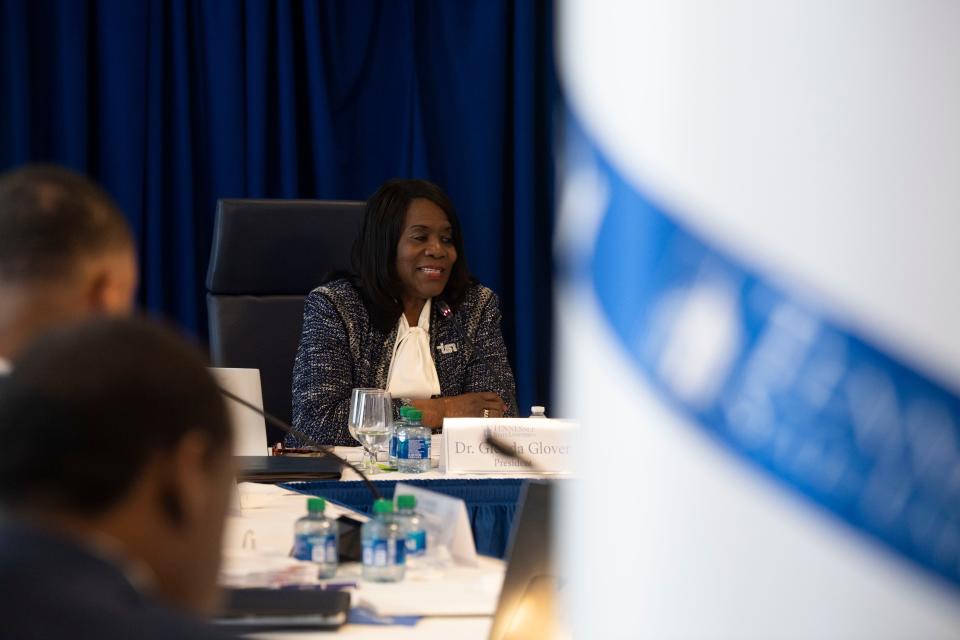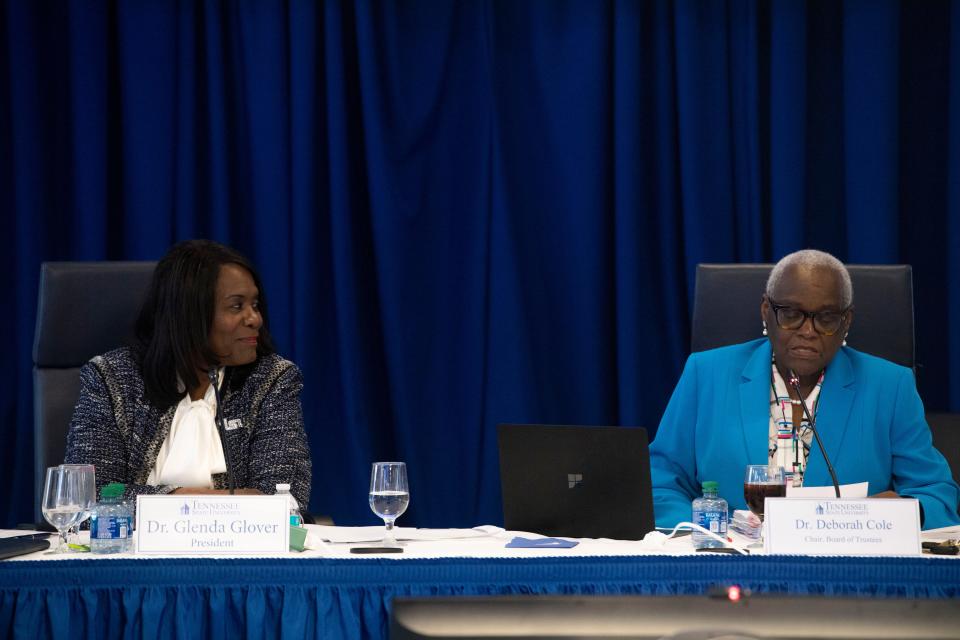TSU audit finds no fraud but calls massive scholarship boost unsustainable
An in-depth forensic audit of Tennessee State Univesity found no instances of fraud or malfeasance at the historically Black university in Nashville. The extensive audit, conducted by the accounting firm Clifton Laron Allen, examined the operations of the school and its foundation between 2019 and 2023.
"That was a great conclusion," TSU President Glenda Glover said in an interview.
The release of the audit comes as the state House passed a bill Thursday morning that will dissolve the TSU board of trustees and replace it with a new board appointed by Gov. Bill Lee. The board will be vacated as soon as the governor signs the law.

Glover, who has led TSU for a decade, announced in August that she would step down at the end of the year. This week, the TSU board named the three finalists to replace Glover. Those candidates are visiting TSU's campus this week for forums with faculty, students and alumni. TSU has also been pushing the state for increased funding after the federal government found Tennessee had underfunded the school by $2.1 billion.
The outside forensic audit of TSU, which cost the state $2 million, did find seven transactions totaling roughly $4,000 that "could not be substantiated as University business." The questioned expenses were made by leadership staff using university-issued credit cards.
The audit also found 56 "significant procedural deficiencies" at TSU. In general, the auditors found that the school could better document transactions, follow its own procedures more closely and improve its budgeting procedures. The auditors noted that TSU was already addressing some of the concerns, but the school needs to take additional actions.
"A forensic audit is a very detailed and extensive audit. The recommendations are expected. The recommendations are not a bad thing," said Douglas Allen, TSU's vice president of business and finance.
The auditors, Allen said, reviewed more than 500,000 documents and 2 million emails.

The auditors did note that the 250% increase in scholarships at TSU between 2019 and 2023 was not sustainable. The largest jump in scholarships happened in 2022 and relied heavily on one-time, pandemic-related federal support. The increase in enrollment lead to a housing crisis, and TSU has had to lease hotels for students. That crisis led to an audit by the Comptroller of the Treasury that found a "lack of planning, management, and sound decision-making" at the school.
The outside audit of TSU was commissioned as follow-up to the 2023 audit by the state comptroller.
When it released the audit, the comptroller's office highlighted a finding that Glover "received $32,640 above her contracted base salary that was not approved until after the money had been paid."
According to the audit, the president mistakenly received the increase when in 2019 an across-the-board raise was given to all TSU employees. Any raises for the president, since the board was created in 2017, require specific approval by the trustees. The board discovered the error in 2022 and retroactively approved the raise for Glover.
The full outside audit is available on the website of the Comptroller of the Treasury.
This article originally appeared on Nashville Tennessean: TSU audit finds no fraud but calls scholarship boost unsustainable
